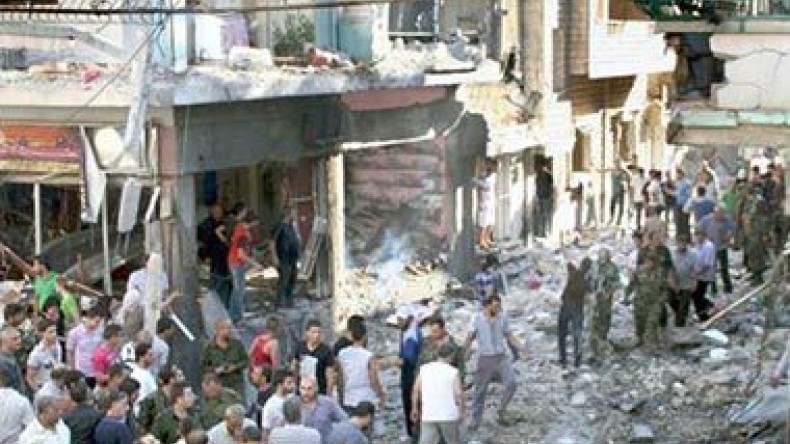
Iraq ‘diversion’ to push Syria agenda
Press TV has conducted an interview with William Jones, with the Executive Intelligence Review, in Washington, about Israeli aerial and ground raids on Syria’s Golan Heights where at least 10 Syrian soldiers have been killed.
Press TV: This is one of several times that Israel officially confirmed that it’s been hitting Syrian targets and in this case precise targets, but how do you think this is affecting the situation because some observers have said Israel is in fact affecting the balance of power now between the insurgents and government troops through these strikes?
Jones: Well, it is certainly having an effect and Israel in their usual manner is mucking about in troubled waters.
The situation developing in Iraq has been something of a diversion in the media. People’s attention is ratcheted on that situation so it seems to me that the Israelis can use this so-called incident with the three disappearing teenagers to run amok in a variety of ways and to follow their own agenda in this respect.
And the attacks of course against the Syrian placements are very serious. It’s obvious now that our war against al-Assad has encouraged and helped to proliferate terrorism that we’re seeing now in Iraq and it would seem to me that anybody reasonable would understand that the Syrian government should be seen as a means of stability in the region rather than instability in that they should shift their attention away from fighting that regime back to giving some critical support to it, as a force of stability in the region.
But of course the Israelis have their own game plan and they are again mucking about in troubled waters to assert their interests, what they conceive as their interests in the region.
Press TV: Israel in response to what’s happened and its targeting of Syrian positions has said that if Israel is targeted, if an Israeli is killed whether it be from the side of Syrian troops or from what it’s called the terrorist elements then we have the right to respond.
But do you think that Israel’s current action is however a sign of intervention in the Syria war and that it has been throughout these three years taking sides?
Jones: I think that’s absolutely the case and that issue has been ratcheted up now to direct military attacks against the Syrian position.
It’s also difficult to see how the Israelis view what’s happening in Iraq.
On the one hand of course they may also be threatened by terrorism, but they have pointed out that they consider their chief problem and chief enemy is Iran in the region and therefore they’re probably keeping their hands behind their backs and supporting in one sense the ISIL operations in Iraq in whatever way thinking that this will be of benefit to them.
But the attacks on the Syrian position of course in the conflict that’s ongoing in Syria where there has been a certain amount of stability because of the victories of the Syrian army - in stabilizing parts of the country at any rate - is again undermined by the Israelis themselves in directly intervening militarily in that conflict.
And that’s very serious; it has dangerous consequences for the region as a whole.
Newsfeed
Videos






























